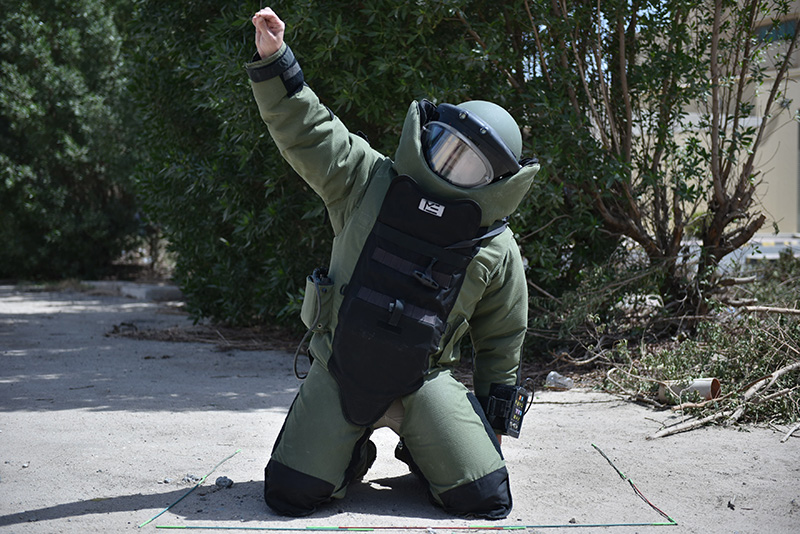As a global end-to-end service provider that counters explosive and hazardous material threats and security risks, SafeLane not only surveys, detects, identifies, protects, clears, mitigates and consults - it trains and builds national capacity in the countries in which it operates.
Over 10,000 deminers and 5,000 canine handlers have been trained so far in countries reaching from Afghanistan to Zimbabwe. SafeLane is also a leading provider of appropriate capacity building programmes on behalf of its key intergovernmental clients.
It enables capacity building as an approach to national development, and follows the United Nations Development Programme's (UNDP) six–step process for systematic capacity building:
- Conducting training needs analysis (TNA) to understand where it can best serve a given nation or a specific community.
- Engaging stakeholders in capacity development to ensure all efforts are aligned and successful.
- Assessing capacity needs and assets, understanding preexisting capacities and which areas require additional training, which skills should be prioritised, and in what ways capacity building can be incorporated into national development strategies.
- Based on the results of the foregoing, which is conducted in-country by SafeLane mentors and managers, an appropriate capacity building response is then formulated.
- Implementation of the capacity development response follows: SafeLane staff train, mentor and advance the skills of local nationals.
- The final stage is the evaluation of the process; lessons learned are shared across the company and with the client for the advancement of all on-going capacity development programmes globally.


